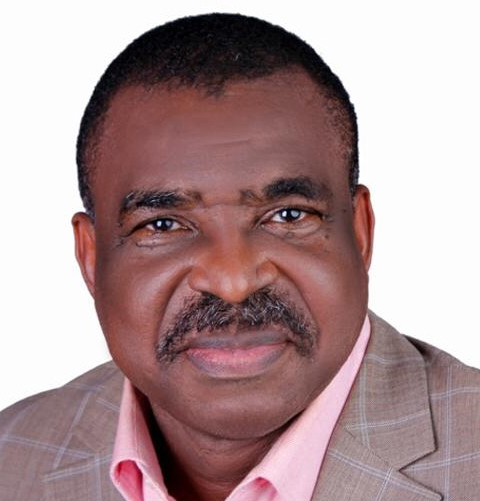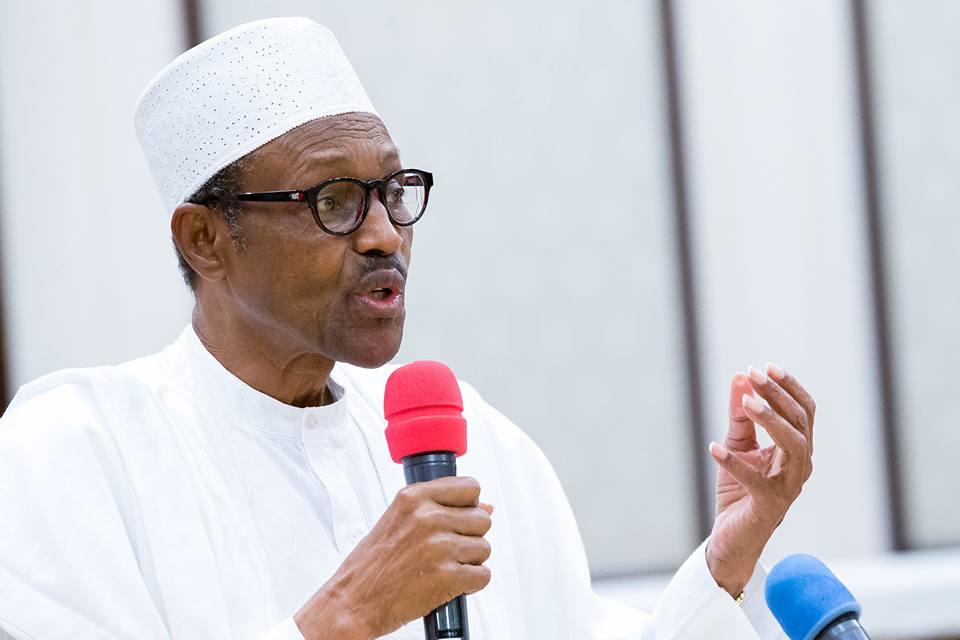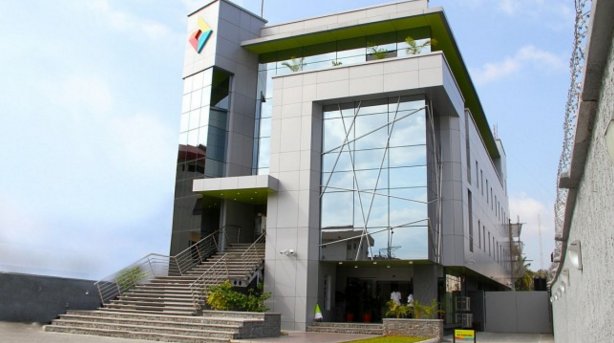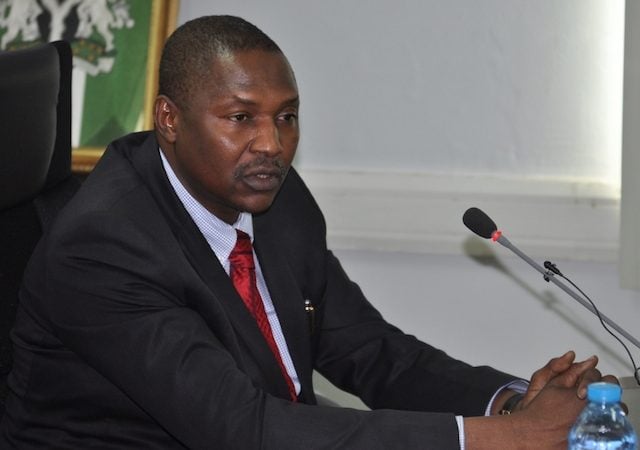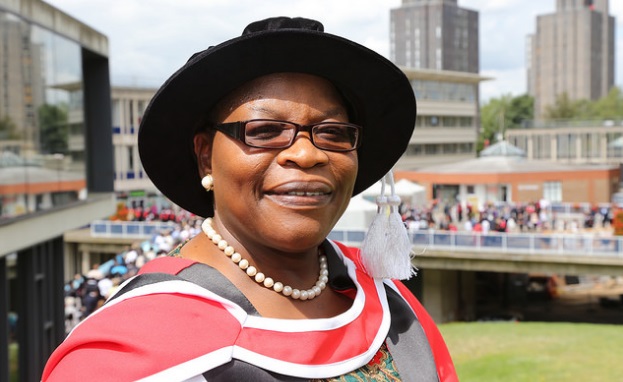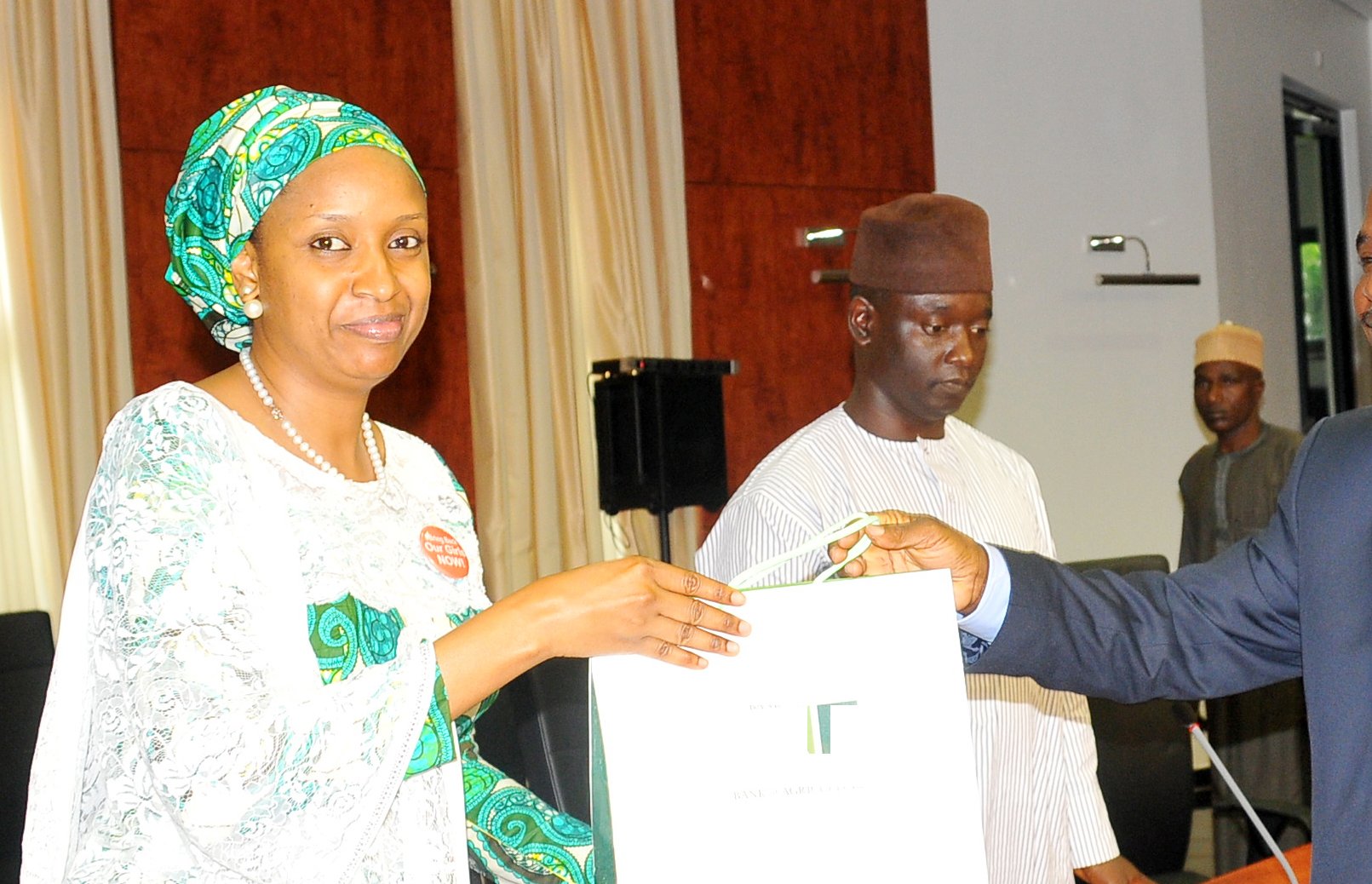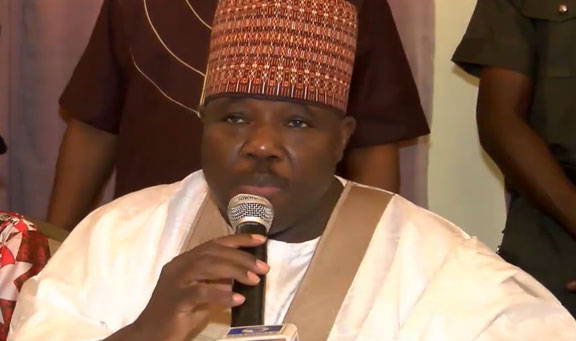It is common knowledge that the focus of govt in the past one year of the administration of president Muhamadu Buhari has been to drastically reduce, if not eliminate economic malpractices popularly known as corruption, which has been wrecking havoc on Nigerian economy.
Apart from the global economic meltdown arising from the plummeting price of commodities, particularly crude oil, which is Nigeria’s main foreign exchange earner, the alarming rate of corruption is evidently another strong reason that the economy is now in recession after recording negative GDP growth rates consecutively in the last two years.
Pundits contend that the estimated sum of money, said to be in excess of three trillion naira, N3t so far recovered from treasury looters , in the past one year of president Buhari’s stewardship, is a sad testimony to how ruinous corruption can be to a society because the stolen funds could have been channeled into provision of medicines in hospitals to boost primary and maternal health care , building of roads to enhance social and economic activities, construction of class room blocks and homes to improve education and the standard of living of Nigerians.
But owing to the pillaging instincts of the ‘nefarious ambassadors’ amongst us, most of the social infrastructures listed above are still acutely in short supply in Nigeria, hence our country is still far from attaining the Millennium Development Goals, MDGs set by the United Nations, UN now repackaged as Social Development Goals,SDGs.
Advertisement
Unlike economic malpractices which politicians have made a song and dance of, the other dimension of malpractices or corruption that have been going on Pari-pasu with economic crimes, but largely unnoticed and therefore unchallenged, is political malpractice.This is corruption perpetuated in the political system and driven by the political class.
Before dwelling further on political malpractices and the attendant damaging effect on Nigerian economy, it is apropos that we first of all, put in proper context, how economic malpractices have ruptured Nigeria’s socioeconomic fabric.
We can do that from the prism of PriceWaterHouseCoopers, PWC which authored a very grim report titled IMPACT OF CORRUPTION ON NIGERIA’S ECONOMY.
Advertisement
According to PWC which is an international brand and a global Leader in finance and tax advisory services, her investigations reveal that “Corruption in Nigeria could cost up to 37% of GDP by 2030, if it’s not dealt with immediately”
Continuing, the report states emphatically that “This cost is equated to around $1,000 per person in 2014 and nearly $2,000 per person that lives in Nigeria by 2030”.
Furthermore,PwC estimates that the ‘foregone output’ in Nigeria since the onset of democracy in 1999 and the ‘output opportunity’ to be gained by 2030 from reducing corruption to the level comparable to countries like Ghana, Colombia and Malaysia, which are also natural resources dependent economies, would be quite significant.
Evidently, the unflattering but credible PWC report is focused on financial crimes, so having highlighted the perverse effect that the unmitigated culture of public officials stealing our common patrimony has foisted on hapless Nigerians ,let’s now avert our minds to political malpractice, which is another form of corruption with huge tendency and capacity to hurt society, badly.
Advertisement
In a recent publication by Budget IT-a financial advocacy group in Nigeria,it was observed that while a whooping N2.3bn was allocated in 2016 budget as entitlements of former presidents/Heads of State and Vice-Presidents/Chiefs of General Staff-l can count such VIPs still alive on the fingers in one of my hands – a paltry N43.7m is the capital allocated to university of Lagos where nearly 70,000 boys and girls applied for admission for the 2016 academic session.
If Nigerian authorities truly believe in the conventional wisdom embedded in the axiom “children are the future” , ” knowledge is power” and “education is the key to the future”, why spend nearly three billion naira buffeting expiring leaders and less than fifty million on the leaders of tomorrow? The simple answer is because it is the political class that apportions the funds through budgeting hence they selfishly allocate the ‘lion’ share to themselves. A clear case of misplaced priority.
The absurdity does not end there.
Information swirling around mainstream and social Media indicate that twenty one,21 serving senators are still receiving pensions from government, having served as governors and deputy governors before becoming senators.
Advertisement
That means that just like the ghost workers now being weeded out of civil service pay rolls at both the national and state govt levels,whereas they are entitled to only one, some of our senators are earning double incomes from govt.
The twenty one, 21 senators who once served as state governors are: Bukola Saraki of Kwara, Rabin Musa Kwankwaso of Kano, Kabiru Gaya of Kano, Godswill Akpabio of Akwa Ibom, Theodore Orji of Abia, Abdullahi Adamu of Nasarawa, Sam Egwu of Ebonyi, Shaaba Lafiagi of Kwara, Joshua Dariye and Jonah Jang of Plateau, Aliyu Magatakarda Wamakko of Sokoto, Ahmed Sani Yarima of Zamfara, Danjuma Goje of Gombe, Bukar Abba Ibrahim of Yobe, Adamu Aliero of Kebbi, George Akume of Benue and Isiaka Adeleke of Osun.
Advertisement
Former deputy governors allegedly involved in the pension rip-off are that of Ekiti ,Biodun Olujimi; Eyinnaya Abaribe of Abia and Danladi Abubakar Sani of Taraba who are now serving senators.
To be fair, the aforementioned law makers of the upper legislative arm of govt, could have been unintentionally,committing the alleged crime of benefiting from pension emoluments from their previous jobs and at the same time earning hefty salaries and allowances as active legislators, but now that the anomaly has been identified, our distinguished senators should voluntarily relinquish the pension privileges from their former service to the nation and amend the relevant laws to guide against re occurrence.
Advertisement
It may be recalled that, sometime in in 2009-10,when some Members of Parliament, MPs in the U.K were discovered to be receiving mortgages for both London homes and residences in their constituent/ homestead, there was outrage by British tax payers and the MPs were compelled to refund the sums of money that had illegally accrued to them.
In the wake of the scandal, Christopher Booker, a columnist in the Uk Telegraph wrote a blistering opinion article on 7th May 2009 where he lampooned indicted MPs thus: “Infantilized by their lack of a proper grown-up job to do, it is hardly surprising that, with honorable exceptions, the army of ciphers making up our political class speak almost entirely in cliches, bristle with moralistic self righteousness, have little idea of how we are actually governed and resort to fiddling their expenses”.
Advertisement
Mr Booker concluded by saying “l was incidentally, interested to see Mr Elliot Morley( One of three indicted MPs) fingered for claiming his non-existent mortgage, since more than once he has gone out of his way to speak abusively about this column in parliament”.
Aside from the legislative arm,the executive arm of govt in Nigeria is equally guilty of cheating tax paying citizens.
Please note that l emphasized that the cheating is perpetrated against tax paying Nigerians only because those dodging or not paying tax at all, are excluded as they are also guilty of the crime of cheating fellow citizens by not paying tax while enjoying the social amenities that tax money provides.
Investigations reveal that a handful of former governors,who are also enjoying pensions as ex governors, are in the current cabinet of ministers of the federal republic.
The list features: Chris Ngige, labour;Kayode Fayemi, solid minerals;Rotimi Amaechi, transport and Babatunde Fashola, works, power and housing.
Again, it is sad and unfortunate that ex governors who are now senators and ministers in cohort with their respective state houses of assembly selfishly packaged the scandalously generous pension packages for themselves without considering the consequences that such financial burden could exact on the lean resources available to states for the sustainability of the social wellbeing of other members of society.
Clearly, Institutionalized selfishness, as identified above, which is a form of political malpractice, is one of the many ways that govt has been cheating the citizenry.
It may appear minor and perhaps innocuous on the surface, but upon closer scrutiny, it actually constitutes significant strain on the nation’s dwindling resources especially now that most state govts are owing workers backlog of salaries.
According to some online publications, in Akwa Ibom State, the law provides that ex governors and deputy governors receive pension equivalent to the salaries of the incumbent.
The package also includes a new official car and a utility vehicle every four years; one personal aide; a cook, chauffeurs and security guards for the governor at a sum not exceeding N5 million per month and N2.5 million for the deputy governor.
In Rivers state , it is alleged that the law provides 100 percent of annual basic salaries for the ex-governor and deputy; one residential accommodation for the former governor “anywhere of his choice in Nigeria”; one residence anywhere in Rivers state for the deputy;three cars for the ex-governor and two cars for the ex deputy every four years.
It is also alleged that in Lagos, a former governor is entitled to two houses, one in Lagos and another in Abuja, estimated at N500 million in Lagos and N700 million in Abuja. The ex governor also entitled to receive six new cars to be replaced every three years; a furniture allowance of 300 percent of annual salary to be paid every two years, and N30 million pension income annually for life.
Since some of the information above are not published on the websites of the state govts, one can not independently verify the claims, but as the saying goes, there is no smoke without fire.
As a retired army general, president Buhari and a host of other retired military officers in his cabinet, including Abdulraman Danbazau, minister of defense; Hameed Ali, Comptroller General of immigration; Babagana Mongonu,national security adviser, amongst others, must have also been earning their pension remunerations before their current appointments.
Now that they have been given a second chance in public service, equity demands that they forgo their pensions, so l hope they have done so.
That’s not all.
Although president Buhari would have his justifications, it appears to me that it is also political malpractice and another form of corruption when mr president goes below twenty one,21 senior police officers to appoint an Inspector General of Police, IGP compelling the premature retirement of the highly trained officers who are senior to the acting IGP.The loss of 21 highly trained senior police officers owing to non adherence to seniority rules and procedures,constitute indirect drain on Nigeria’s lean resources as the funds applied in training the sacked officers who were expected to contribute their knowledge and skill towards effective and efficient policing, is lost as they are being forced to leave service before attaining retirement age.
As Thisday newspaper in its Sunday Comment on July 10, 2016 pointed out, “Whichever way one looks at it, this particular police retirement was untidy. And so were some of the promotions. The newspaper then concluded that “The canvassed criteria were a mixture of political convenience and poor attention to service records”.
By the same token, not adhering to the provisions of Federal Character Comission, FCC in the appointment of Nigerians into public offices which is creating unnecessary tension in the polity and failing to apply same procedure in the distribution of infrastructure are also political malpractices of some sort.
Thankfully,what could have amounted to a breach in 2016 budget was prevented when president Buhari ordered the return of the Lagos-Calabar rail line project into the appropriation bill to serve as a balance to the lagos-Kano rail line already provided for in the 2016 budget.
The initial removal of the project which was an apparent contravention of the letter and spirit of FCC rule,could have been deemed also as a form of political malpractice, had it not been rectified.
Before any of the public officers identified in the list of beneficiaries of political malpractices catalogued above take it personally and in the typical Nigerian fashion, start planning vendetta, they should first ponder Wole Soyinka’s remarkable statement in his famous book ‘The Man Died’.
In the wisdom of Soyinka, a Nobel prize laureate, “The man dies in all those who keep quiet in the face of tyranny”.
The seminal work ‘Principles of Political Economy’ by John Stuart Mills, the last of the classical economists,probably provided the bulwark for Soyinka’s postulation. John Stuart Mills, the renown leader of thought in the caliber of Adam smith and John Maynard Keynes , is also regarded as the father of the economic theory of utilitarianism. He had observed, over one hundred years ago, that “A man who has nothing to which he is willing to fight for,nothing which he cares more about than he does about his personal safety is a miserable creation who has no chance of being free unless made and kept so by the exertions of better men than himself”.
So as a social and economic rights advocate, l make bold to point out flaws or breaches in leadership with a view to pricking the conscience of our leaders.
As l have often shared with friends and colleagues, public intellectuals like me are leading from the streets while federal govt officials lead from Aso Rock mansion and National Assembly, NASS, just as governors and state legislators lead from from the various govt houses and state houses of assembly in their respective states across the country.
Ultimately,the objective of those of us leading from the streets and those in govt houses would align when voters feel that they are living in a relatively fair, just and equitable society. That in my view is what the practice of democracy should be about and a pathway to liberal democracy to which all Nigerians aspire.
Having said that, l believe that l have sufficiently established that a combination of both economic and political malpractices negatively impact society, if allowed to fester.
And it is now pretty clear why a gauntlet should also be thrown down against political malpractices which although are the more subtle and sublime type of corruption,are equally as devastating as financial corruption.
In fact, some political scientists would argue that since they are disruptive, political malpractices could lead to social upheavals like riots and fractured societies or worst still,fragmentation of nations.
Take Sudan for instance. Owing to perennial conflicts over political inequality, there are two countries out of the former, yet internecine wars have not departed the scorched land in over 30 years.
Aleksandr Solzhenitsyn cautions in his book ‘Gulag Archipelago’ that “When we neither punish or reproach evildoers,we are not simply protecting their trivial old age,we are thereby ripping the foundations of Justice beneath new generations”.
Justifiably, president Buhari has in the past year of being at the helm of affairs in Aso Rock, tackled financial corruption in high places frontally, and so far, the yield has been bountiful, although most Nigerians, including my good self, would argue that the collateral damage to the economy and society has been debilitating , because the process which should have been driven systematically, has been carried out dramatically with calamitous consequences.
Admittedly, the endeavor of getting rid of corruption in a society where it has developed tap root is a daunting task, but president Buhari must fight the war against both financial and political corruption holistically.
Mr president can’t afford to be seen as being determined to fight one to a stand still, and acquiesce with the other.
So that posterity can judge him fairly and thus earn himself a deserved pride of place in the annals of Nigerian history, political corruption should be fought with same fervor.
Apart from former president Olusegun Obasanjo,OBJ nobody else has gotten a second chance to lead Nigeria twice as army general and later as a politician, except president Muhamadu Buhari.
Late army general Sanni Abacha tried and failed and so also did,general Ibrahim Babangida, IBB who also was unsuccessful.
For that singular privilege,mr president can not afford to let down the Nigerian voters estimated to be in excess of 14m who voted for him to become president,irrespective of differences in tongue, tribe, religion or creed.
Permit me to conclude with Suzy Kassem’s concept of the qualities that voters should look out for in choosing a good leader, as contained in her book ‘Rise up and Salute the Sun’.
She recommends that voters should ” Pick a peace maker. One who unites not divide. A cultured leader who supports the arts and true freedom of speech, not censorship. Pick a leader who will not only only bail out banks and airlines, but also families from loosing their houses and jobs…”. Kassem further advises voters to “Pick a leader who chooses diplomacy not war. An honest broker in foreign relations. A leader with integrity, one who says what they mean, keeps their word and does not lie to the people. A leader who encourages diversity not racism. One who understands the needs of the farmer, the teacher,the doctor, and the environmentalist…not only the banker, the oil tycoon,the weapons developer or the insurance and pharmaceutical lobbyist”.
The admonitions above that were prepared long ago for a different audience, happens to be so apt for modern day Nigerian voters.
In my considered opinion,president Buhari embodies all the positive virtues outlined in Suzy Kassem’s checklist for good leadership,so it could only be a question of time before the earlier listed perceived or real injustices in the polity are reversed.
Finally, our leaders can’t afford to ignore the leadership wisdom espoused by the great philosopher, Charles Darwin who posits that “If misery of the poor be caused not by laws of nature,but by our institutions,great is our sin”.
Onyibe, a development strategist, futurologist and former Commissioner in delta state govt is an alumnus of Fletcher School of Law and Diplomacy, Tufts University, Massachusetts, USA.
